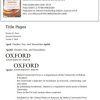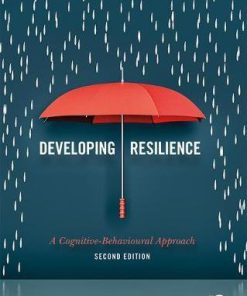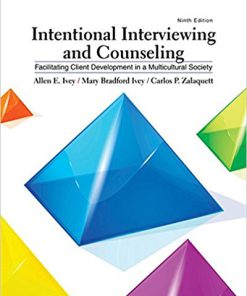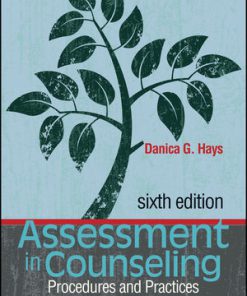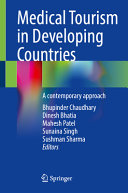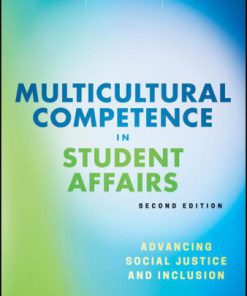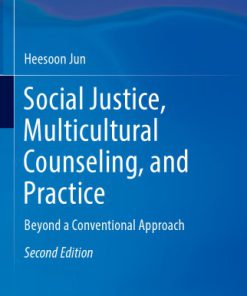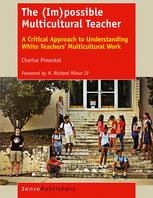Developing Multicultural Counseling Competence A Systems Approach 3rd Edition by Danica 0134523733 9780134523736
$50.00 Original price was: $50.00.$25.00Current price is: $25.00.
Developing Multicultural Counseling Competence A Systems Approach 3rd Edition by Danica Hays – Ebook Instant Download/Delivery ISBN(s): 0134523733, 9780134523736
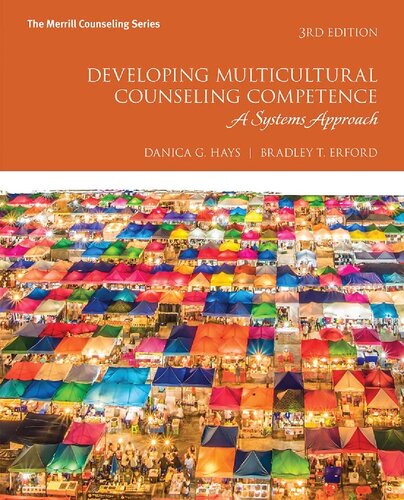
Product details:
- ISBN 10: 0134523733
- ISBN 13: 9780134523736
- Author: Danica Hays
Note: This is the bound book only and does not include access to MyLab™ Counseling with Pearson eText. To order MyLab Counseling with Pearson eText packaged with the bound book, use ISBN 0134522702. Designed to help students and new counselors acquire multicultural counseling competence, this book includes self-development opportunities for fostering awareness, knowledge, and the skills necessary for understanding cultural makeup, understanding others of diverse identities and experiences, and engaging in facilitative counseling relationships. Expanding on the features that made the first two editions widely popular, this revision provides a closer look at how to apply the information in practice through an expanded number of case studies and “Voices from the Field” features.
Table of contents:
Section 1 The Foundations of Multicultural Counseling
Chapter 1 The Culturally Competent Counselor
Preview
The Culturally Competent Counselor
U.S. Demographics
Key Terminology of Multicultural Counseling
Use of Counseling Services and Multicultural Populations
Counseling versus Cultural Norms of Diverse Populations
Stigma and Mistrust
Discrimination Experiences
Inaccessibility of Services
The Role of Communication in Multicultural Counseling
Verbal Communication
Nonverbal Communication
Emotional Expression
Communication Patterns of Clients and Counselors
Context and Multicultural Counseling
Prejudice and Discrimination
Immigration
Acculturation
Interpersonal Violence and Trauma
Developing Multicultural Counseling Competence
A Systems Approach to Multicultural Counseling Competence
Level 1: Individual
Levels 2, 3, and 4: Family, Friends, and Peers
Level 5: Community Systems
Level 6: Historical
Resistance to Multiculturalism
Ethical Considerations in Multicultural Counseling
Summary
Review Questions
Chapter 2 Cultural Identity Development
Preview
Racial and Ethnic Identity Development
Racial Identity Models
Cross’s Nigrescence Model
Helms’s People-of-color Identity Model
Helms’s White Identity Model
Ponterotto’s Model of Cultural Identity Development
Phinney’s Model of Ethnic Identity
Biracial and Multiracial Identity Development
Biracial Identity Development
Multiracial Identity Development
Addressing Racial and Ethnic Identity in Counseling
Gender and Sexual Identity Development
Gender Identity Models
The Key Model
Downing and Roush’s Model of Feminist Identity
Hoffman’s Model of Feminist Identity
Addressing Gender Identity in Counseling
Sexual Identity Models
Cass’s Homosexual Identity Formation Model
Troiden’s Model of Sexual Identity
Inclusive Model of Lesbian/gay Identity Formation
Bisexual Identity Development
Transsexual and Transgender Identity Development
Addressing Sexual Identity in Counseling
Spiritual and Faith Identity Development
Fowler’s Model of Faith Development
Spero’s Development of Religious Transformations
Genia’s Development of Growth
Parks’s Model of Spiritual Identity
Poll and Smith’s Model of Spiritual Identity
Addressing Spiritual Identity in Counseling
Summary
Review Questions
Section 2 Social Advocacy
Chapter 3 Social Justice Counseling
Preview
Key Constructs for Understanding Social Advocacy
Historical Context
Social Injustice and Mental Health Issues
Counselors as Social Advocates
Advocacy in Professional Counseling Standards
Three-Tiered Model of Social Advocacy
Challenges and Benefits of Social Justice Counseling
Summary
Review Questions
Chapter 4 Racism and White Privilege
Preview
Historical Foundations of Race and Racism
Social Construction of Race
Defining Racism
Costs of Racism for People of Color
Cognitive Costs
Affective Costs
Interpersonal Costs
Physical Costs
Efforts to Combat the Costs of Racism
White Privilege
Costs of Racism for Whites
Cognitive Costs
Affective Costs
Interpersonal Costs
Whites’ Psychological Responses to Racism and White Privilege
Whiteness and Being American
Color-Blind Racial Attitudes
Myth of Meritocracy
Focus on Exceptions
Psychological Dispositions of White Racism
Eradicating Racism
Counselor Self-Awareness
Client Services
Assessing the Client’s Racial Identity
Addressing Clients who Have Experienced Microaggressions
Addressing Client Racial Prejudice
Community Collaboration
Addressing Racism in the Client’s School and Community
Addressing Racism within Other Systems
Political and Legal Concerns
Economic Concerns
Public Health Concerns
People also search:
developing multicultural counseling competence a systems approach (4th ed.)
developing multicultural counseling competence 3rd edition
developing multicultural counseling competence textbook
developing multicultural counseling competency involves a
what is multicultural competence in counseling
You may also like…
Psychology - Psychotherapy
Psychology - Psychotherapy
Relationships & Lifestyle - Health - Diseases & Disorders
Assessment in Counseling Procedures and Practices Danica G. Hays
Medicine - Medicine & Nursing Reference
Medical Tourism in Developing Countries: A contemporary approach 1st Edition Bhupinder Chaudhary
Education Studies & Teaching
Developing Managing Your School Guidance Counseling Program Norman C. Gysbers
Uncategorized
Multicultural competence in student affairs advancing social justice and inclusion Pope
Science (General)
Social Justice Multicultural Counseling and Practice Beyond a Conventional Approach Heesoon Jun
Engineering - Electrical & Electronic Engineering
Education Studies & Teaching
The Impossible Multicultural Teacher 1st Edition by Charise Pimentel ISBN 9463511466 9789463511469



